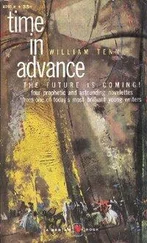She’s thirty years old, a beautiful, dark-haired woman with ample hips and good legs. Her name, Merny, is a combination of two names. Her mother is called Mercedes and her father Nicolás. They put together the first syllables of their respective names to create a new one, Mer from Mercedes and Ni from Nicolás, Merni. It was the clerk at the registry office who made the i into a y . Merny lives with a man called Jofre. Andrés has seen him a couple of times, but knows little about him. He knows he works as a bricklayer, but nothing more. Merny doesn’t often talk about him either. She lives with him, but he isn’t the father of her two sons; they’re from her first man, a Colombian who went off to Barranquilla and never came back. Her oldest son is called Willmer and he’s eleven years old. He’s thin and gangly and is growing his hair long so that he can get some rasta braids. He likes rap and basketball. The youngest is called Yurber and he’s only four. He’s a chubby, smiley little fellow. In the morning, he goes to the school nearest where they live and in the afternoon, a girlfriend of Merny’s looks after him. Willmer, on the other hand, is old enough to be out on the street by himself.
“The street’s a dangerous place,” says Merny. “There are a lot of bad people in the street. Just in the barrio next to ours you get kids of ten drinking and getting high on crack and carrying guns. Everyone knows about it, even the police, but they don’t do anything. Perhaps just as well. They might make things worse.” Then she adds: “Fortunately, Willmer’s really into sports. So far, thank God, my son has turned out well.”
Merny, Jofre, Willmer, and Yurber. Andrés finds it odd that poor people should like such names. Why do they choose them? What’s wrong with Juana or Gerardo? Why not Elena or Luis or Inés or Ramón? Or do they perhaps find those names too ordinary, too dull and insipid, with no particular spark of their own? Perhaps that’s why, when it comes to choosing a name, they turn to characters in films, baseball players, famous foreigners. Always in English, of course. He also doesn’t understand parents who like to make up those strange combinations and burden their children with almost unpronounceable first names. That’s very popular too. Like Merny. A son born to Jason and Mildred becomes Jamil. But then, when they go to the registry office, the same thing happens as happened with Merny. The clerk writes the name as he thinks fit: Yaimil. Yaimil Rodríguez. That’s the name of one of the nurses who works nights at the hospital’s emergency room. Other people might well think that it gets a child off to a bad start, that, for some, their first name is their very first disadvantage in life.
Merny doesn’t see it like that. On the contrary. She’s never said as much, but it’s clear that she’s proud of her sons’ names. You could almost see it as an act of affirmation, a brief exercise of power, a victory. She has given birth to a child who will, no doubt, have a pretty hard time of it. Her baby is just another dot on the poverty line in the national statistics. Merny will probably have no control over anything. Hers is an existence bound to the state as regards health, education, and work. Poverty seems to trace a path that always ends up in the state’s apartments — be it bureaucracy or prison. Perhaps the only personal, private thing Merny could offer her children in that first moment was a name. A special name, a name like Willmer that has a ring of the future and of the north about it, something unusual. Or a different name, like Yurber, so different that only she could have thought of it. That perhaps is her personal seal, the one thing she can control, the surest thing she can give them. An illusion with a ring to it. The opportunity of a name.
Once, years ago, when she’d first started working for his father, Andrés had to drive her home. Someone called her from a public phone, from the barrio where she lives. Willmer would have been about nine months old. “Something’s wrong,” they said. “He’s sick. You must come.” Merny got very worried, but she looked at Andrés, taken aback, when he offered to give her a lift. He happened to be visiting his father that day. He even offered her medical help, but Merny refused. Almost reluctantly, she allowed him to take her in his car to a place near where she lived. They took the highway, and she spoke very little, but kept restlessly moving in her seat, as if she had a strange ability to move her spinal column from one buttock to the other. And sometimes she waggled her fingers. Andrés tried to calm her and said again that if it was anything serious to please let him know. She asked him to drop her in the avenue at the foot of the hill, the vast mountain where the marginalized have slowly constructed their own difficult realm. There she would get a jeep that would take her a few miles farther on, as far as a hill, near a police station, where she would get out and continue on foot up the concrete steps to her barrio, her house, and Willmer’s fever.
It could take more than an hour. The last stretch alone consisted of more than four hundred steps. Her sister counted them once, she said, one by one, as she climbed them. She was coming back alone, at night. Four hundred and twenty-two steps, to be exact. She did it to take her mind off feeling so frightened.
Andrés can vividly remember giving Merny that lift. It was at the height of the electoral campaign. On the way back home, he listened to the party political broadcasts on the radio. “The moment for the poor of this country has arrived,” bawled one candidate, meanwhile inveighing against the old political parties and promising a new paradise. There’s also a heaven where everyone is called Willmer.
Merny still lives in the same place and in the same way, with the same fears. How much time has she wasted going up and down those steps in order to come to his father’s apartment? Twice a week every week. She comes to clean, to get rid of the dirt produced by someone else. Four hundred and twenty-two steps there and four hundred and twenty-two steps back. Plus the jeep, the avenue, the bus to the train, twelve stations to another subway station, another avenue, and another bus to the door of the apartment building. It’s a long way to come just to kneel down and get to grips with a stubborn stain between the tiles on the floor of a kitchen that isn’t hers. Is that how she sees it? Is that how she feels? When she goes up the steps to her house, after a day’s work. When she looks at that vast hill, crammed with tiny houses and hovels. Not even the police will venture into some of those barrios. When she goes up those steps and thinks that Willmer is no longer a baby with a fever, but that there are other dangers, like being old enough to kill someone. He could turn out to be a complete lout. What must she do to avoid that? How can she help him?
For a moment, Andrés wonders what lies behind Merny’s look, behind those eyes which he sometimes finds elusive or even incomprehensible. What are they hiding? She’s not happy with her life. How could she be? No one could be happy with those four hundred and twenty-two steps. Is that what lies behind her look? Is that what lies behind her gaze? A dark, silent, long-repressed resentment? He suddenly feels cold. Perhaps Merny doesn’t care about his father at all. She’s spent years here, so close, so much part of their lives, but, at the same time, so far away. He looks at her now and feels that he doesn’t know her, that he doesn’t know what she thinks or feels about his father. Perhaps she’s just thinking about her work. Perhaps, for her, the death of old Miranda is simply a work-related incident. Perhaps not. He’s suddenly terrified by the thought that Merny might secretly hate them. Does she hate them?
Читать дальше












